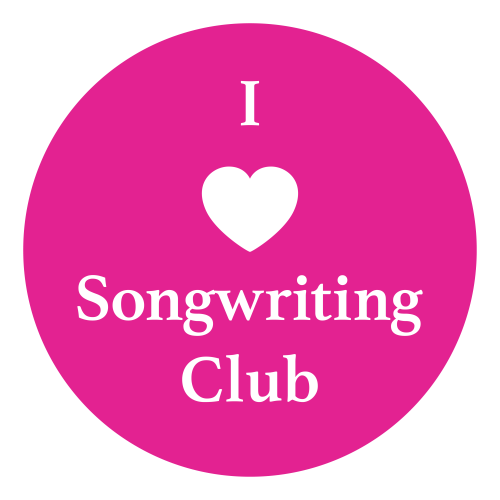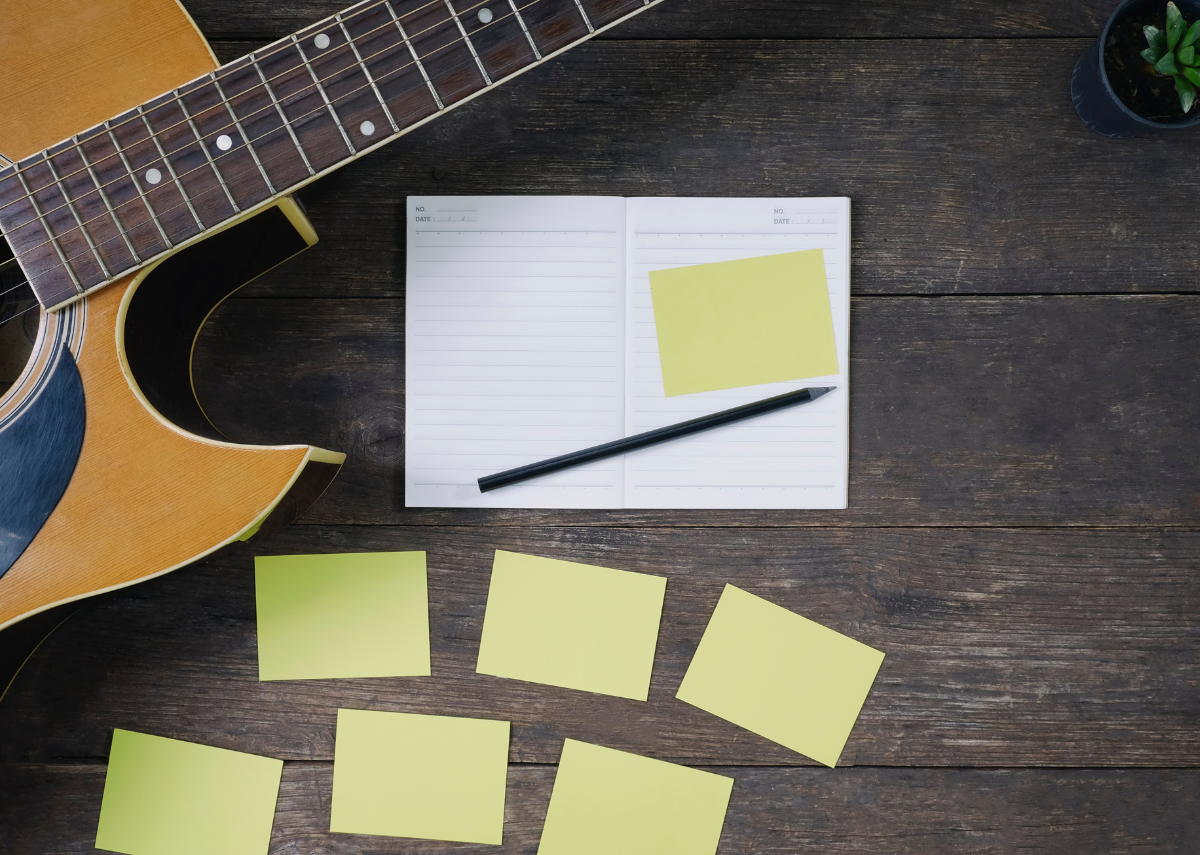What Songs Should I Record? Best Practices to Recording Your First Album
Based on the content of Episode 25, The Magic of Songwriting with Francesca de Valence
In this blog and podcast episode, we answer commonly asked questions emerging artists have including: What is the best way for me to go about recording my songs? How do I choose the best songs for the album? How do I get clear on my artistic sound? What are the steps involved in the recording process?
Why having goals for your recording project can be empowering
Before launching into recording an album, we invite you to reflect on this question: What are your goals for making this album?
- Is it for yourself? To realise a potential within yourself?
- Is it for your family? To leave a legacy of your work for them?
- Is it to serve the songs which are a message to the world? And what is that message?
- Is it to establish or advance your music career?
- Is it to create a product that you can make money from? Is it so that you can have songs that you can pitch to other artists or for licensing opportunities?
- Is it a combination of a few of these ideas, or something else?
Knowing your goals can be clarifying for making choices along the way, especially when it comes to investing in resources – such as recording and production costs, studio time, development of skills, and if relevant to you, how you plan to recoup on your costs.
Do you want to make money from your music?
As soon as you start talking about sharing music with the world and wanting to make money from that music, we’re moving away from simply creating and expressing, and expanding into the realm of business. And in business, it’s important to understand how your business will make money and be sustainable over time, especially when your business may need to invest in resources upfront – such as the recording of an album.
It can be really helpful and empowering for independent artists to see themselves as the CEO of their music business. But many artists that are starting out don’t really know where to begin when it comes to understanding business principles and the music industry that their business operates within. Often there’s so much attachment to their songs, that they can lose sight of the goals of why they’re recording in the first place and how this fits into having a sustainable music business that can grow over time.
How do I choose songs for my album?
If you’re just starting out as an artist, we invite you to ask yourself if it’s important to record a whole album. Looking at your goals, and if using these songs to advance your career whilst also having a sustainable business is one of them, then perhaps an EP project, or even a handful of singles may be more likely to tick your goals.
Knowing the scope of the recording project will give you the number of songs you’ll need to choose. If it’s a single – that’s one song. An EP, perhaps 4 or 5 songs, or a full length album of 10 songs.
Whilst there is so much more nuance to this, a basic guide could be for a single, choose a song that is easy for your audience to remember – a clear hook, strong repetition and something with a strong sense of rhythm. For an EP and album, put a few singles on there and then find some variety, light and shade with the remaining album tracks.
Are my songs ready to record?
Before jumping straight into the studio, take some time to refine your songs. If you’ve been writing in the Club, you’ll have feedback on all your songs and you can use that feedback to know what connects with others most. But if you’ve not gotten feedback on your songs, this would be a great time to do that. Maybe you’re wanting some professional songwriting feedback to help you know what’s working and what could be further refined. Use that feedback (or not) to refine and polish the songs. Are you going to do this yourself? Are you going to take this to a collaborator to co-write with you?
This is the time to do this – not at the recording stage when you’re paying for studio time.
How do I edit my songs?
One of our founder, Francesca de Valence’s favourite ways to edit her songs is to ask herself some questions. Here are some questions she might ask herself:
- What am I trying to say and who am I saying it to? Is that clear in the song?
- Are there any spaces that feel unnecessary? For example, could I cut out a bar or a beat to move the phrase forward a bit? Depending on what you’re trying to achieve.
- And finally, when there’s a niggly feeling in the back of my head about a lyric, a melody, or a chord progression and I keep overlooking that feeling, this is the time to pay attention to that feeling and ask questions around it. Is that really what I’m trying to say? Or could I say that in a different way?
And then she simply answers those questions. If you’re not attached to the outcome and simply want the best for the song, then usually the answer will be clear.
What is my artistic sound and how do I define this?
This step is often a challenge for artists starting out, especially if they write on an acoustic instrument and sing. There can be so much space in the song based on the simplicity of instrumentation that the direction for the artistic sound could be so varied. For example, it would be fairly easy to produce a simple 4-chord song in a folk, Americana country or pop direction, regardless of the lyric or melody.
To avoid being swayed by other people’s ideas for the direction of your work, it’s worth taking the time to put together a playlist of where you hear your music heading before taking your songs to a music producer. If you’re writing songs as you’re producing, or you play in a band, your artistic sound might be more defined from the outset.
How much does it cost to make an album?
Many emerging artists don’t have a budget for recording their album. To get a gauge on costs, speak to 3-5 different producers to understand the scope of the work and the costs, before putting a budget together. And if you’re applying for funding you’ll be able to use real costs in your budget.
If you have production and recording skills you can definitely save a lot of money on recording your own work. And if that’s something you want to do over time, investing in that skill set can be highly beneficial to the sustainability of your business.
What role does a music producer play in recording my album?
A music producer plays a creative role in the recording of your work, and any creative ideas can change the artistic direction of your songs. So be clear about what direction you want to go in before talking to a few different producers about how they could help you to make this a reality. And make sure your producer has experience working in the style that your music is. Listen to examples of their work and ask lots of questions. This should be a good start in knowing if you’re a good fit for each other – both creatively and in terms of communication styles.
There’s an important conversation to be had about rights and I always recommend having a clear written agreement drawn up to ensure that you are all on the same page about rights, fees, and royalties.
In the studio:
Before you get into the studio, practice your songs and be ready to perform in the studio. You don’t want to waste valuable studio time by practicing whilst doing takes. Work with your producer on pre-producing your songs. That is, shaping and arranging the songs so you have a tangible idea of the instrumentation and sound before committing to the full recording process with live musicians.
Sometimes you won’t need to use live musicians, especially if you’re cutting costs. There’s lots of amazing technology that samples live drums and strings so that you can overdub these. And often music producers can play a bunch of instruments quite well too. Work with your producer to allow the song to shine!
What happens after I record my songs?
After recording, the next step is to mix and then master your songs – in that order. You might use a separate mix and mastering engineering for these steps. They are specialised skills that can also change the artistic direction of your recording. For example, a mix engineer can do a pop mix or a country mix on your song. That’s the power the mix can have regardless of what you recorded.
These steps will add costs onto your budget, so you might want to get clear on these from the outset also. Ensure that you have a chance to review each of the mixes before you sign off on them.
We understand it can be really challenging to put words around what we hear, when giving feedback to your mix engineer. It’s perfectly acceptable to say something like “the vocals sound woolly” or the drums sound like they’re in a room that’s too big for the intimacy of the vocal performance.
Learning to communicate about your songs and mixes will come with time. Be patient and perhaps get some support around this from people whose ears you trust.
What’s next?
By now, you have your audio assets ready to share with the world.
If you’d like to know about our professional development mentoring opportunities in I Heart Songwriting Club, to get mentorship support around your recording, release and marketing processes check out Level Up Club.
Episode Show Notes:
Get your creativity, confidence, and songwriting output flowing. Join The Club and receive the support and structure to write 10 songs in 10 weeks and get feedback from a private peer community. This is THE essential writing practice that has changed the careers and lives of 1000s of songwriters worldwide.
Just getting started on your songwriting journey and need more hands-on support? Establish a firm foundation and develop your musical and lyric skills with our Beginner Songwriting Courses. They are the perfect place to begin and cover everything you need to know to write your first songs. You’ll receive lessons from Francesca directly!
Don’t struggle to write your next album – write an album a year with ease! Watch our Free Songwriting Masterclass.
Want more for your songwriting but don’t know where to go from here? Take the I Heart Songwriting Club Quiz to discover your next steps and inspire your way to writing better songs.
Get songwriting insights from I Heart Songwriting Club:
Be inspired by Francesca on socials:
Podcast theme song: “Put One Foot In Front Of The Other One” music and lyrics by Francesca de Valence
If you love this episode, please subscribe, leave a review and tell everyone you know about The Magic of Songwriting.




